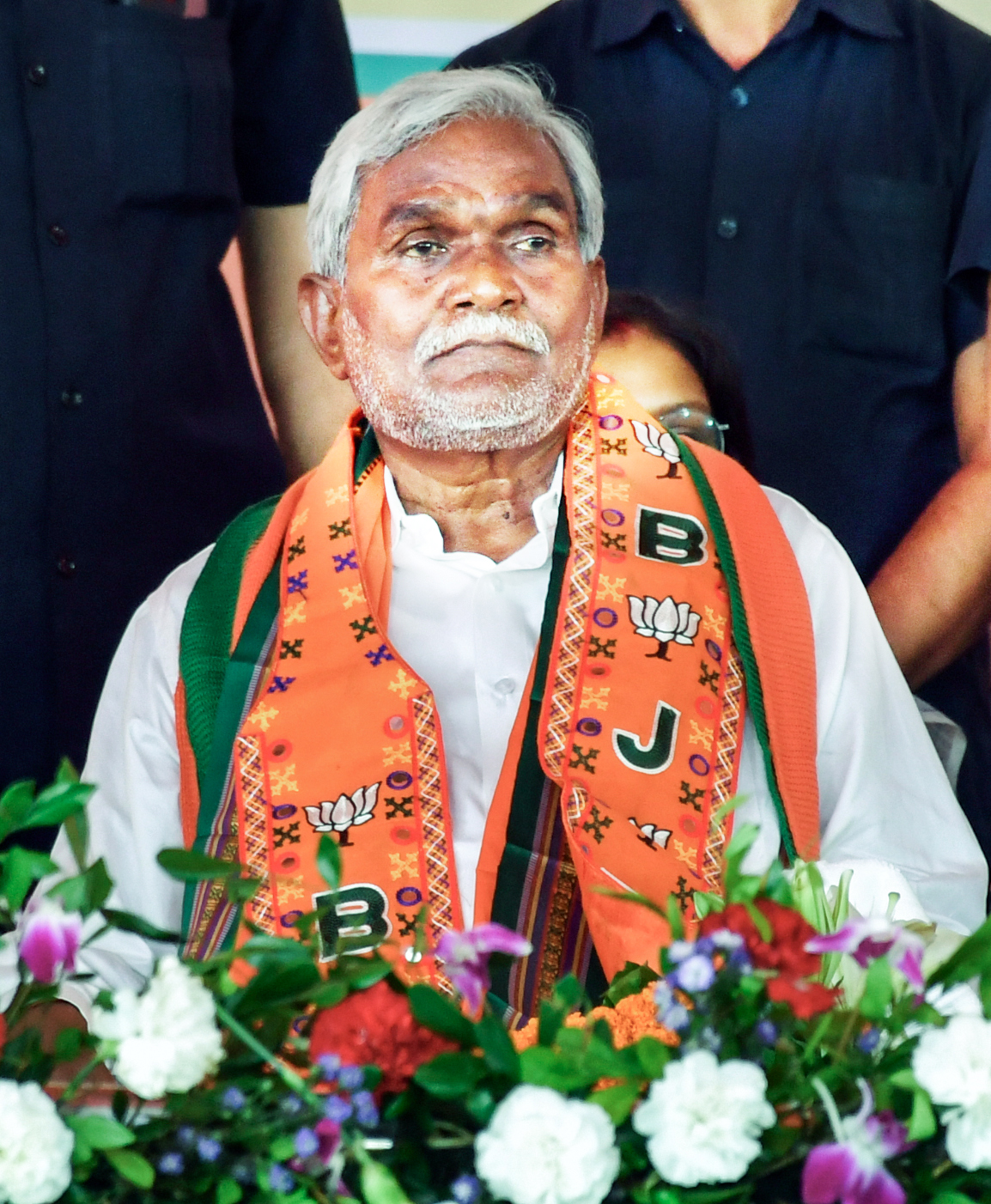BJP aims to reclaim Kolhan with key tribal leaders, but JMM dismisses impact of Champai Soren’s defection.
New Delhi: With just three days remaining, both, the NDA and I.N.D.I.A blocs are aiming to make a strong impact in the Kolhan region, which is set to vote in the first phase of the Jharkhand Assembly elections on November 13. This phase will be a key test for several prominent political figures, including former Jharkhand Chief Minister Champai Soren, who is running for the first time on a BJP ticket after breaking away from the JMM. Similarly, Saryu Rai is contesting for the first time under the Janata Dal United banner.
The Kolhan region, situated in southeastern Jharkhand, encompasses three crucial districts: West Singhbhum, Saraikela Kharsawan, and East Singhbhum. With 14 Assembly seats, namely Baharagora, Ghatshila (ST), Potka (ST), Jugsalai (SC), Jamshedpur East, Jamshedpur West, Ichagarh, Saraikela (ST), Chaibasa (ST), Majhgaon (ST), Jagannathpur (ST), Manoharpur (ST), Chakradharpur (ST), and Kharsawan (ST). This area holds substantial political importance, primarily due to its large tribal population that shapes the region’s cultural and socio-political identity. Tribal communities have a long-standing presence in Kolhan, making it a traditional stronghold for leaders and parties advocating for tribal rights and interests. Consequently, political contests in Kolhan are heavily focused on tribal issues, making it a vital battleground in state elections. The unique demographics of the region ensure that political strategies here are designed to connect with tribal sentiments, addressing key issues like land rights, development, and cultural preservation.
The Kolhan region could be decisive for Jharkhand’s overall political landscape. Historically, it has produced four of the state’s seven Chief Ministers, including Arjun Munda, Madhu Koda, Champai Soren, and Raghubar Das, the state’s first non-tribal Chief Minister. The ruling Jharkhand Mukti Morcha (JMM) is keen to replicate its 2019 victory, while the Bharatiya Janata Party (BJP) is working hard to gain ground in a region where it suffered a complete loss in the last Assembly election. With the addition of former Chief Minister Champai Soren, BJP hopes to make a strong showing in Kolhan. As a veteran JMM leader who has won the Saraikela seat six times, Soren’s recent shift to BJP could alter the political dynamics in the region, potentially making him an agent of change.
A decade ago, BJP was a major political force in Kolhan. In 2009, BJP secured six seats, while JMM won four. The 2014 Modi wave helped BJP maintain six seats in Kolhan, with its ally, the All Jharkhand Students Union (AJSU), winning another. JMM also won six seats, and the final seat went to Geeta Koda, who contested as an independent from Jagannathpur. However, in 2019, AJSU was no longer part of the BJP-led NDA, and the alliance suffered a complete loss. Out of Kolhan’s 14 constituencies, nine are reserved for Scheduled Tribe (ST) candidates, one for Scheduled Castes (SC), and the remaining four are general seats. In the 2019 elections, JMM won an impressive 11 out of the 14 seats in the region, while Congress won two seats, and Saryu Roy, then an independent candidate, defeated BJP’s incumbent Chief Minister Raghubar Das in Jamshedpur East.
In this election, BJP is banking on Soren’s deep connection with the Kolhan region, built over 35 years of work with JMM, and his significant contributions to the Jharkhand statehood movement, which earned him the title of the ‘Kolhan Tiger.’ A BJP source said that the party is making a strong push to reclaim its lost ground in the region.
“Kolhan was the reason we lost power in 2019, failing to win a single one of its 14 seats. But this time, our organisation is revitalised to remove what we consider the most corrupt government in Jharkhand’s history,” the source added.
With influential figures like Soren and Munda campaigning in Kolhan, BJP is confident of winning at least eight to ten of the 14 seats, marking a potential turning point in the election and boosting their chances of returning to power.
To further strengthen its tribal appeal, BJP has gained the support of Sita Soren, daughter-in-law of Shibu Soren, and Geeta Koda, wife of former Chief Minister Madhu Koda. The party has fielded prominent candidates, including Meera Munda, wife of former Union Minister Arjun Munda, in Potka; Purnima Das Sahu, daughter-in-law of former Chief Minister Raghubar Das, in Jamshedpur East; Geeta Koda in Jagannathpur; and Soren’s son Babulal Soren in Ghatshila. With this lineup, BJP aims to improve its performance in Kolhan.
Meanwhile, JMM has asserted that Soren’s switch to BJP will have no impact in this election.
A JMM leader said, “JMM, founded by Dishom Guru Shibu Soren, has created many tigers, including Champai Soren. JMM makes tigers as well as lions; however, when they join the BJP, they turn into rats. He won’t influence the Kolhan region because the people of Jharkhand recognise only one symbol—the JMM’s bow and arrow.”
The leader also criticised BJP’s approach, saying, “BJP preaches against dynasty politics, yet they have given tickets to the sons and wives of politicians in Kolhan. BJP will once again fail to win a single seat here. There was a time when BJP frequently accused Madhu Koda of corruption, and now they have awarded a ticket to his wife,” he added.

